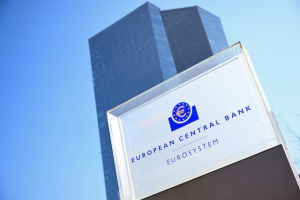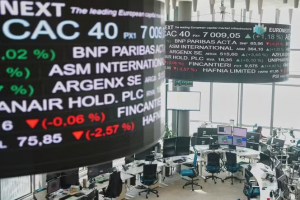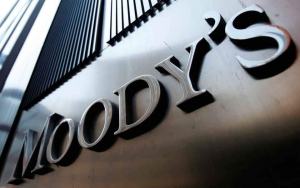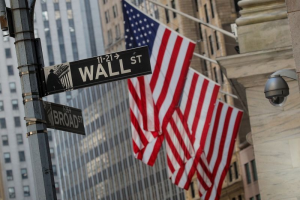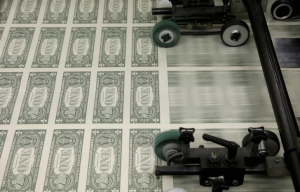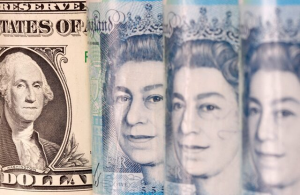European shares plunged to a 16-month low on Monday as investors grappled with the possibility of a recession after U.S. President Donald Trump showed no signs of letting up in his aggressive trade war.
The pan-European STOXX 600 (.STOXX), opens new tab slumped 5.8% at 0722 GMT, down for the fourth straight session and on track for its steepest one-day percentage decline since the COVID-19 pandemic.
Trade-sensitive Germany's benchmark index (.GDAXI), opens new tab dove 6.1%, among the worst hit markets in the euro area. At one point the index was down more than 20% from its March all-time closing high. The index would confirm it has been in a bear market if it closes at session lows.
Over the weekend Trump told reporters that investors would have to take their medicine and he would not do a deal with China until the U.S. trade deficit was sorted out, sparking a fresh wave of selling in Asian markets.
"There was some hope over the weekend that maybe we would see the start of a negotiation, but the messages that we've so far seen suggest that President Trump is comfortable with the market reaction and that he's going to continue on this course," said Richard Flax, chief investment officer at Moneyfarm.
European banks (.SX7P), opens new tab were on pace to confirm a bear market with Commerzbank (CBKG.DE), opens new tab and Deutsche Bank (DBKGn.DE), opens new tab shedding 10.7% and 10%, respectively on Monday.
The German share price index DAX graph is pictured at the stock exchange in Frankfurt, Germany, April 7, 2025. REUTERS/Joachim Herrmann Purchase Licensing Rights, opens new tab
Investors also booked gains in shares of arms makers, which had surged earlier this year on prospect of higher defence spending. Tankmaker Rheinmetall (RHMG.DE), opens new tab dropped 10%, while Hensoldt (HAGG.DE), opens new tab, Rheinmetall (RHMG.DE), opens new tab and Renk (R3NK.DE), opens new tab fell between 8% and 12%.
European Union countries are weighing approval of a first set of targeted countermeasures on up to $28 billion of U.S. imports in the coming days. The 27-nation bloc faces 25% import tariffs on steel and aluminium and cars and "reciprocal" tariffs of 20% from Wednesday for almost all other goods.
The European Central Bank has estimated that a blanket U.S. tariff would lower euro zone growth by 0.3 percentage points in the first year. EU counter-tariffs on the U.S. would raise the damage to half a percentage point.
As the economic outlook has darkened, investors have ramped up their bets on interest rate cuts by the ECB and the U.S. Federal Reserve.
Traders are now pricing ECB deposit rate at 1.65% in December from 1.75% on Friday and 1.9% last week before Trump's tariff announcement.
Barclays cut its year-end forecast for the STOXX 600 to 490 points from 580 it forecast last month, but acknowledged that "setting a point forecast has little value at this stage – there is no precedent, nor fundamental framework to rely on for this crisis."
The benchmark index is about 17% below its all-time high hit in March, before concerns over the economic fallout of Trump's trade policy upended global market rally.


